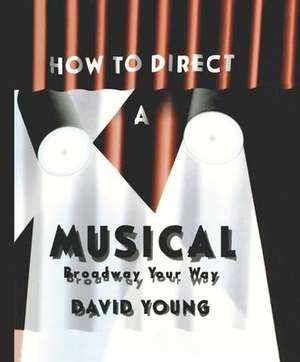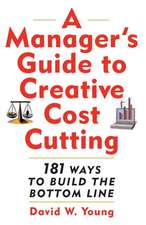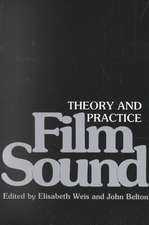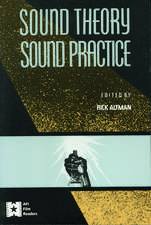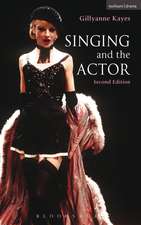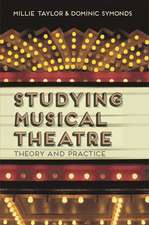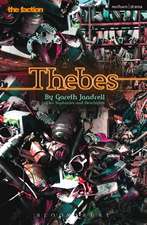How to Direct a Musical
Autor David Youngen Limba Engleză Paperback – 29 iun 2015
Preț: 437.71 lei
Nou
Puncte Express: 657
Preț estimativ în valută:
83.75€ • 87.69$ • 69.47£
83.75€ • 87.69$ • 69.47£
Carte tipărită la comandă
Livrare economică 09-23 aprilie
Preluare comenzi: 021 569.72.76
Specificații
ISBN-13: 9781138870567
ISBN-10: 1138870560
Pagini: 180
Dimensiuni: 190 x 229 x 10 mm
Greutate: 0.34 kg
Ediția:1
Editura: Taylor & Francis
Colecția Routledge
Locul publicării:Oxford, United Kingdom
ISBN-10: 1138870560
Pagini: 180
Dimensiuni: 190 x 229 x 10 mm
Greutate: 0.34 kg
Ediția:1
Editura: Taylor & Francis
Colecția Routledge
Locul publicării:Oxford, United Kingdom
Notă biografică
David Young is Producing Director of the Kennedy Center American College Theater Festival.
Cuprins
Part I: Before Rehersals Begin: 1. The Guide; 2. The Diary; 3. Director's Book; 4. Plot of the Musical Fanny; 5. Checklist of Important Points in Each Musical Production; 6. Script Analysis; 7. Setting the Style of Your Musical - Exploring the Musicals of the 1980s and 1990s; 8. First Exercise; 9. Collaborating with Designers, Crew, and Staff (first production meeting); 10. Specifics: costumes and wigs, sets (design and sketches), makeup, sound and lights, props and set dressing, stage manager, production book, rehearsal pianist; 11. Musical Director and Choreographer; 12. The Director Who Stages His/Her Own Dances; 13. For the Director Who Has Never Staged a Dance Number; Part II: Auditions and Casting: 14. Sample Notice; 15. Early Challenges; Part III: The Beginning - First Rehearsals: 16. Rehearsal Schedule; 17. Sample Autobiographies; 18. Blocking (samples to use); 19. Staging the Musical Numbers (Diagrams Included); 20. Comparison of Similarities in Musical Numbers; 21. Putting Together a Multicultural Musical Revue; Part IV: Working With Singer/Dancers on Acting - The Early Stages: 22. Where Are We?; 23. Listening: a Most Important Tool; 24. Characterization; 25. Think Time for the Director; 26. Improvisation Theatre Games - To Help Strengthen and Enliven Rehearsals as the Pressure Begins; Part V: Specific Challenges - Midway: 27. Pulling the Musical Numbers Together; 28. Talking about Comedy; 29. Farce - A Special Kind of Comedy; 30. Stage Fights - How We Did Them!; 31. Accents; 32. Helping Singers to Age Realistically; 33. Aging Americans and the Theatre; 34. More Production Meetings; 35. Microphones; 36. Orchestra Rehearsals; 37. Update and Relaxers; 38. Run Through; Part VI: Pacing, Blending, Streamlining: 39. Pauses, How to Eliminate the Unwanted Ones; 40. Special Rehearsal; 41. Sorting Out; 42. Plugging Along - Then Disaster; 43. Concentration - The Dustin Hoffman Story; 44. Videotaping could Help; 45. Publicity and Photographs - Necessary Interruptions; Part VII: Ontage - Finally: 46. Lights/Sound, Dry Tech; 47. Rehearsals with Sets, Costumes, and Tech; 48. More Observations; 49. Some Breakthroughs; 50. Fine-Tuning the Songs; 51. Last Dress Rehearsals - Progress; 52. Staging the Curtain Calls; 53. Preview; 54. Opening Night; 55. Evaluation; Part VIII: Appendices: 56. Understanding and Directing Young People and Teens; 57. Concerning Special Talents, or Whose Disability is it Anyway?; 58. How to Stage Musical Numbers; 59. The Choreographer/Director; 60. Computers for the Musical Theatre.
